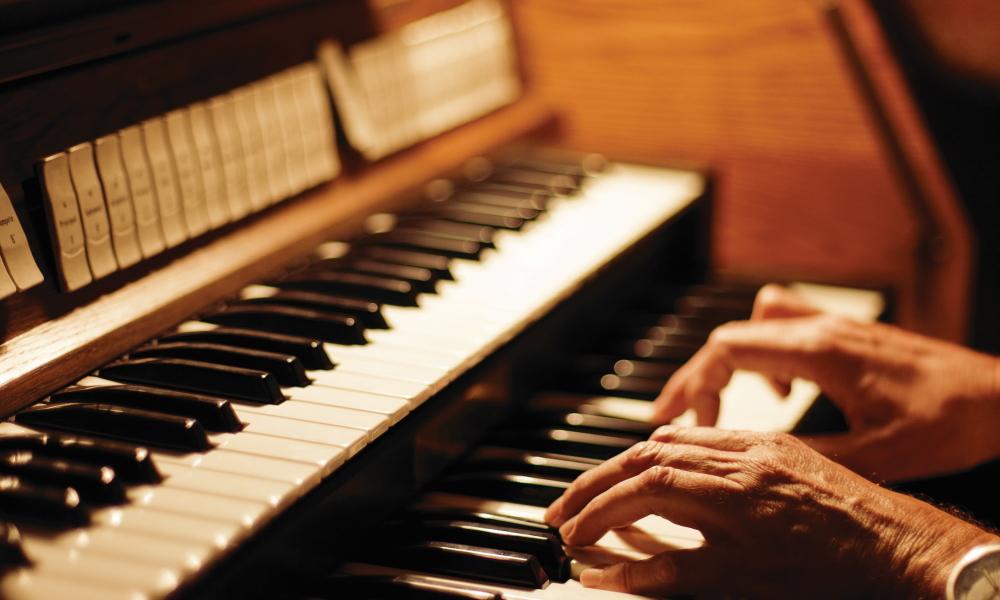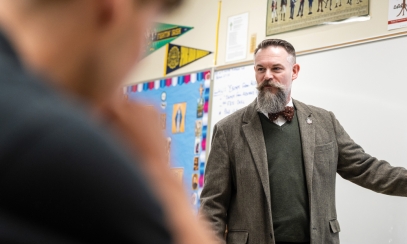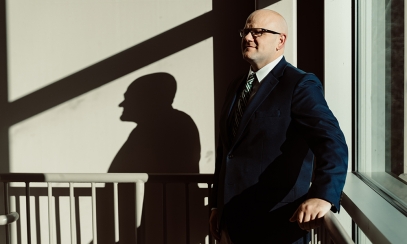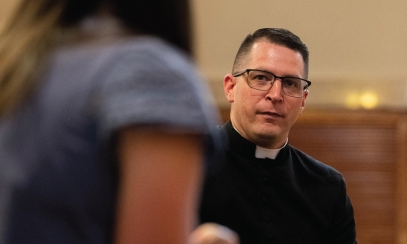
Composing for Christ
New Mass setting written by local composer
New Mass setting written by local composer
Xanthe Kraft, a local composer and graduate of Gonzaga Preparatory School, spent time earlier this year as an artist-in-residence at St. Gertrude Benedictine Monastery in Cottonwood, Idaho. Kraft was the 12th artist-in-residence at the monastery, but the first composer. While there, her work was to compose and arrange a Mass setting for the sisters.
Science held Kraft’s attention as a high school student and early on in her college experience, but music was always there in the background. After graduating from Gonzaga Prep, she left Spokane for Dartmouth College in New England. Her academic interests were first in astrophysics, then later earth sciences and computer science, not music. That change happened slowly. “It was a process that grew alongside my faith,” Kraft said. “I had always studied science in high school, and in college I thought I wanted to be a scientist of some kind.”
At the same time, Kraft pursued music and musical composition in her free time. In 2009, 2010, and 2012, she competed in the original composition division at MusicFest Northwest in Spokane with her own compositions, winning certificates of merit, a silver medal, and gold medal.
During her undergraduate education, Kraft continued writing her own songs and adapted them for unaccompanied singing when she joined an a capella group on campus. Reflecting on that time, Kraft said: “Because it wasn’t my specific focus at the time, writing music, for me, was a response to life. Whatever I was feeling in terms of my spiritual life, it could be best processed – really brought to the forefront of my relationship with God – and then sifted upon and reflected upon in the form of song.”
Between her studies in computer science and her personal interests in music and composition, Kraft felt stretched between two different worlds. Near the end of her undergraduate education, she made the decision to take on music with a greater emphasis. She decided to apply to an interdisciplinary master’s program in Digital Musics. She also began directing the liturgical choir at Dartmouth. In that role, she arranged her first piece of sacred music.
Kraft said helping with the liturgical choir helped her “to participate in clothing the word of God in beauty.” She wrote more music during her time with the choir and, in her words, “add music to the liturgy that was beautiful, simple and fitting.”
Kraft’s desire to write sacred music continued throughout her graduate program and led her to apply to the artist-in-residence program.
“I had a sense that I needed to write a Mass setting, and that’s why I applied,” she said.
Living and working at the monastery involved joining in the daily life of the sisters, with a real Benedictine sense of balancing work and prayer. Kraft said: “How I would compose, is that I would always attend their morning prayer schedule.” For Kraft, this meant regular breaks from work to return to prayer with the sisters. But she made clear this rootedness in prayer was essential. By keeping the sisters schedule of prayer, she was seeking God first.
“From that, composition would follow,” she said. “He will take care of his own.”
Kraft’s process of composition was straightforward. “I approached every day expecting God to deliver,” she said.
The Mass setting is influenced by both Gregorian chant and Celtic themes, and all of the music is in English for an Ordinary Form Mass. From the Kyrie to the Lamb of God, the music keeps true to Kraft’s desire that liturgical music would be beautiful and simple so the whole congregation can sing the Mass setting.
Her composition, entitled the Mass of the Annunciation, premiered on March 25 – the feast of the Annunciation – at St. Gertrude’s Monastery. A link to a YouTube video of the Mass setting can be found at www.dioceseofspokane.org/news/new-mass-setting



